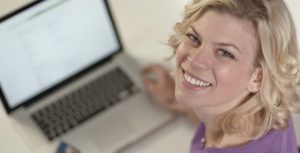
EOFY Asset Deduction
 TAX TIME IS NIGH and it might be a good time to think about whether there are any assets your business may need, and try to get them in before June 30 rolls around. Whether it’s new computers, tablets, office furniture, a new car — as long as each item costs less than $20,000, you can deduct it immediately, rather than depreciating it over time, as was the previous method for assets over $1,000 in value (depreciation still applies for asset purchases above $20,000) — but only until and including 30 June 2018.
TAX TIME IS NIGH and it might be a good time to think about whether there are any assets your business may need, and try to get them in before June 30 rolls around. Whether it’s new computers, tablets, office furniture, a new car — as long as each item costs less than $20,000, you can deduct it immediately, rather than depreciating it over time, as was the previous method for assets over $1,000 in value (depreciation still applies for asset purchases above $20,000) — but only until and including 30 June 2018.
The small business tax breaks were introduced by the Abbott-Hockey government, but having already been extended, they will cease on 30 June 2018. Following this date, any big ticket assets for your business (and of course there are some exceptions) can be used to reduce your taxable income immediately.
Pick an asset, any asset…
There are a lot of items you can deduct, with the exception of some small items, such as horticultural plants, software that’s allocated to a software development pool and some capital works, which have special depreciation rules. If you’re not sure of what you can claim, it’s wise to ask your account or financial adviser first, particularly if you have a penchant for horticultural plants (perhaps try artificial ones?), otherwise make sure to keep your receipts!
After 1 July 2018, the asset threshold will reduce back to $1,000. After then, any asset purchase you make that’s greater than $1,000 will have to be depreciated, using the traditional methods of depreciation, which you can read about in this blog post.
Australia is a services nation
While you’re thinking about starting a business, don’t forget to consider starting a business within the leading four service groups, identified by Australia’s Chief Economist Mark Cully:
- Professional and support services
- Information and communications technology (ICT) and the digital economy
- Trade, transport and logistic services
- Utilities services
Professional and support services, in particular, is currently experiencing a phase of high growth, largely because starting a business in this sector is both low risk and cost. Most businesses operating within the professional and support services sector are home-based, providing vital services to other businesses located across Australia and, sometimes, the world.
***
Starting Your Own Bookkeeping Business
 One such profession currently in high demand is bookkeeping, specifically BAS and tax services. As more and more Australians start their own businesses, there becomes a greater demand for bookkeeping, BAS and tax services. EzyLearn recently partnered with National Bookkeeping to help registered BAS and tax agents to start, growth and develop their business, by becoming National Bookkeeping licensees.
One such profession currently in high demand is bookkeeping, specifically BAS and tax services. As more and more Australians start their own businesses, there becomes a greater demand for bookkeeping, BAS and tax services. EzyLearn recently partnered with National Bookkeeping to help registered BAS and tax agents to start, growth and develop their business, by becoming National Bookkeeping licensees.
Visit the National Bookkeeping website or contact their team for more information.
Read more about the requirements to become a registered BAS agent.

 AS YOU MAY BE AWARE, each year the ATO updates the tax concessions for businesses. This is usually the result of a budget measure being passed by the Government. Other times it’s due to the ATO simplifying the tax processes for businesses.
AS YOU MAY BE AWARE, each year the ATO updates the tax concessions for businesses. This is usually the result of a budget measure being passed by the Government. Other times it’s due to the ATO simplifying the tax processes for businesses.










